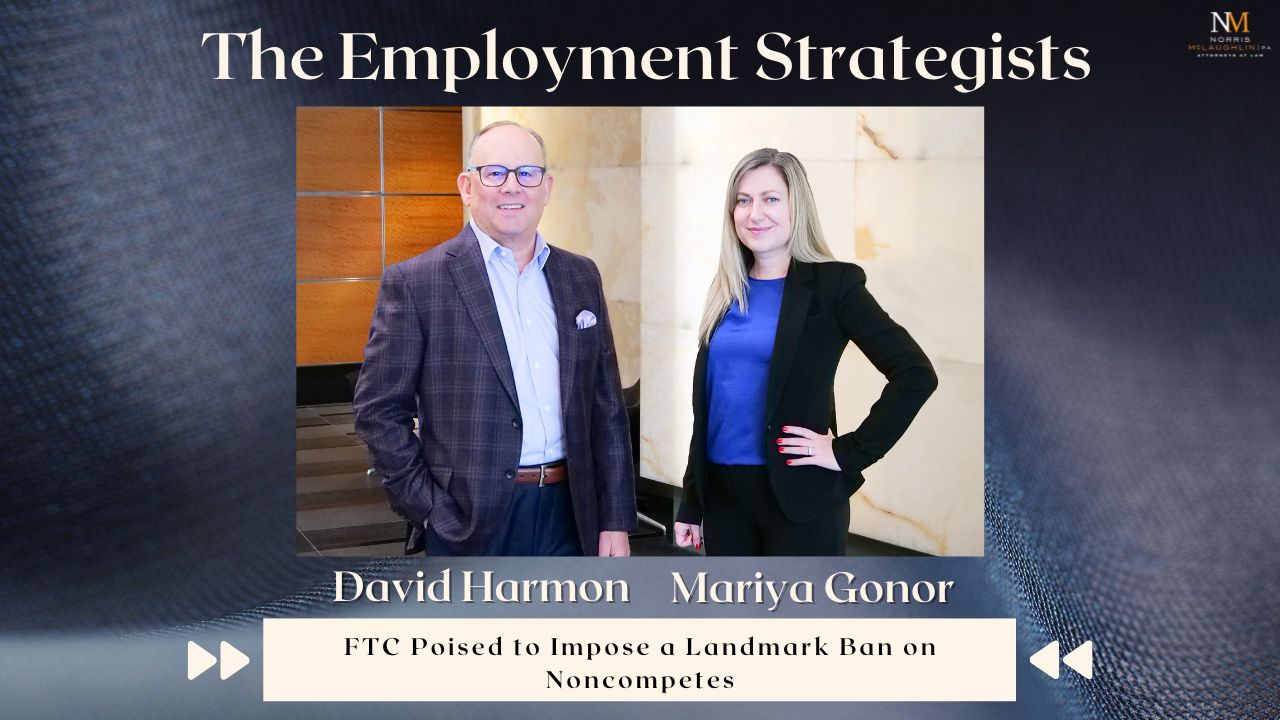3 Legal Tools for your Next Salary and Compensation Negotiation

Negotiating your salary and compensation package can feel like stepping into a high-stakes game of poker, especially when you're not sure what cards you hold. Whether it’s negotiating a new role or a raise with your current employer, the process may feel like trying to hit a moving target while blindfolded. Historically, an imbalance in information power between employers and employees often placed the latter at a disadvantage. Indeed, while employers had all the key information in the negotiation, i.e., your current rate of pay, the range that they would offer for the position, and how much other employees in similar positions were paid, the employee held only one piece of the puzzle. But, recent legislative developments have significantly leveled the playing field. The following examines three pivotal legal tools that empower employees during salary and compensation negotiations, whether they are entering a new job or seeking a raise. It's crucial to remember, though, that legal provisions can vary by state, so it's always wise to verify the applicability of these tools in your specific jurisdiction.
1. Restrictions on Salary History Inquiries - "What Was Your Last Salary?" - A Question of the Past
The movement to prohibit salary history inquiries began gaining momentum with Massachusetts' Act to Establish Pay Equity in 2016. This law set a precedent by barring employers from asking about an applicant's past pay before extending a job offer. New York State quickly followed, and under its version of the law, all employers - both public and private - are prohibited from asking prospective or current employees about their salary history and compensation. It also prohibits businesses from seeking similar information from other sources. Note that salary history generally encompasses salary, bonus, benefits, and other forms of compensation.
New Jersey’s version of the statute, effective Jan. 1, 2020, made it an unlawful employment practice to screen job applicants based on the applicant’s salary history, including such information as prior wages, salaries, or benefits. Additionally, according to this recently-adopted statute, an employer cannot require the applicant’s history to satisfy minimum or maximum criteria for employment.
Employers must also be aware that they cannot share the salary or benefit history of an employee with another employer who may make an inquiry unless the applicant has expressly consented to the disclosure.
The practical implication of these statutes is that the employer can no longer make a potential employee a lowball offer simply because of their last job’s paycheck. The new salary is no longer tied to past earnings, but is based on the value of the role and the skill of the prospective employee. Now you can enter salary negotiations without the baggage of your previous paychecks.
2. Salary Transparency laws, or “Show Me the Money”
Since 2020, an increasing number of states have implemented laws requiring employers to disclose salary ranges for open positions. These laws aim to create a more equitable starting point for salary negotiations. Colorado led the way in January 2021 by mandating public posting of salary ranges, with Connecticut, Nevada, Rhode Island, Washington, California, New York, and Hawaii following, bringing to eight the current number of states that require employers to post or disclose salary ranges for open positions. Illinois has also passed a statewide pay transparency law to be implemented in 2025.
The District of Columbia and an additional 15 states—Alaska, Georgia, Iowa, Kentucky, Maine, Massachusetts, Missouri, Montana, New Jersey, Oregon, Pennsylvania, South Dakota, Vermont, Virginia and West Virginia—are considering pay range transparency bills.
It's not perfect (employers sometimes offer wide ranges for the same position), but it's a huge step towards transparent and fair salary discussions. In these jurisdictions, candidates are now given critical information upfront, enabling them to make more informed decisions and negotiate more effectively. For current employees negotiating a raise, some research into job postings can offer insight about the potential pay ceiling for the position. For instance, knowing that the top range for the position is listed at $150,000.00, but the current salary is $100,000.00 can be helpful during negotiations. Similarly, if competitors offer a higher range than what an employee currently makes, that information can be used to show that the salary is below the going market rate.
3. “Water Cooler Chats: Talking Pay!”
Some of us may encounter a manager who says, "Let's keep this between us, okay?" This brings us to an intriguing point: many employers, whether through official policy or a nudge-and-wink, discourage or outright prohibit salary discussions among employees. Indeed, the institute for Women’s Policy Research reported that in a 2017 survey, approximately 60% of private sector workers responded that they were either discouraged or prohibited from discussing wage and salary information.
Such a policy, is, however, in violation of federal (and many state’s) laws. The National Labor Relations Act (NLRA) has long protected workers’ rights to communicate with each other about working conditions, including what everyone is earning. The National Labor Relations Board (NLRB) doubles down on this, saying it's a big no-no for employers to scare employees with negative consequences for engaging in these protected conversations. This law protects individual employee rights to collaborate for the improvement of their pay and working conditions, whether a union is involved or not.
In addition, in 2013, New Jersey amended its New Jersey Law Against Discrimination (NJLAD) to prohibit retaliation against employees who seek information about equal pay, job titles, compensation information, and other employment-related data for the purpose of investigating possible discrimination or a gender wage gap. The rule allows private action for damages, applicable to all employees, including those not covered by the NLRA.
With these legal insights in mind, salary negotiations should be an easier mountain to climb for the individual, as employers must comply with the current compensation landscape.
For more insights on salary and compensation negotiations, or other employment topics, stay tuned to our blog, The Employment Strategists, and podcast of the same name.
For inquiries or further information, please don't hesitate to contact David Harmon and Mariya Gonor at TheEmploymentStrategists@norris-law.com.




